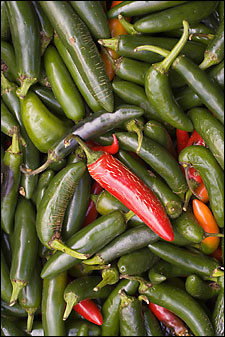Fruits of summer
If it’s really true that we are what we eat, most of us should run, not walk, over to Harvard’s first-ever Farmers’ Market, to rehabilitate ourselves from the world of unhealthful eating and mediocre grocery store produce.
Sponsored by the Food Literacy Project at University Dining Services, fresh, in-season vegetables and fruits, as well as wholesome baked goods, can be found at the market every Tuesday from 1 to 6 p.m. on the lawn between the Science Center and Memorial Hall.
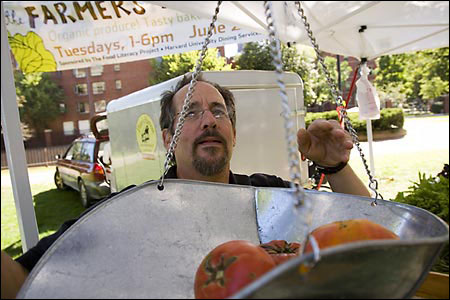
Since its inception in June, the market has quickly become a popular and healthful habit for Harvard and the surrounding neighborhoods – and an economic boost for farmers as well.
If it’s really true that we are what we eat, most of us should run, not walk, over to Harvard’s first-ever Farmers’ Market, to rehabilitate ourselves from the world of unhealthful eating and mediocre grocery store produce.
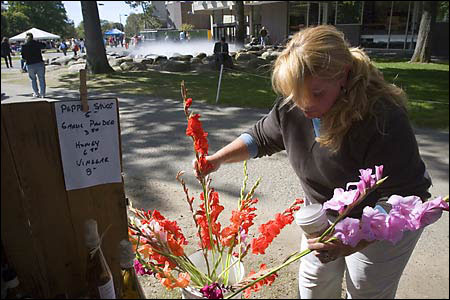
Jessica Zdeb, Food Literacy Project administrator, says that farmers’ markets are booming and that she realized that “many Harvard staff may have markets in their home communities, but cannot get to them since they are during work hours; a market at Harvard allows them to buy farm-direct produce during the work day.”
Zdeb also believes the market is a welcome attraction for the surrounding communities. “We’re bringing non-Harvard community members onto the campus by providing a range of products that isn’t otherwise available in Harvard Square.”
Local growers, some of whom have never participated in a farmers’ market, say it’s been a wonderful experience.
“I love it. The people are great, they express an appreciation of having it here in their backyard … and a lot of them come looking for organic and that’s what I’m all about,” says David Purpura, owner of Plato’s Harvest in Middleboro, Mass.
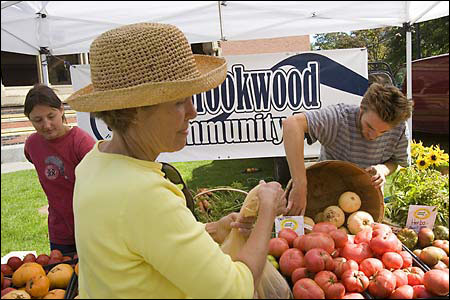
As for why farmers believe locally grown is superior to store-bought produce, it’s all in the taste, freshness, and variety. “You can’t buy the variety, there’s only a limited variety in the supermarket, and it’s been sitting somewhere on a truck. … For me, the food has traveled 50 miles, not 3,000,” says Purpura. “And you can look the guy in the face: ‘I’m the one who grew it.’”
Jason McCartney, who works on Brookwood Community Farm, likes the diverse crowd at Harvard and says local farms help to better the world by “reducing pesticides and oil consumption, and support the local economy by not supporting underpaid workers and child labor in foreign countries – and the food just tastes better.”
Right now we’re nearing the end of tomato season, but potatoes and winter squash are among the vegetables starting to come into season. Fruits such as apples and pears are also ripening up for pies and cakes, or just to eat on their own.
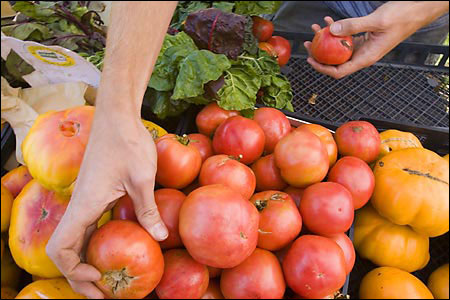
And if you’re looking for ideas on how to prepare a meal with the fresh ingredients that you just purchased, University Dining Services has cooking demonstrations and recipe ideas on-site.
There is still time to enjoy these healthy offerings, all while helping local farmers and the economy, so don’t miss out. The market closes for the season on Oct. 31.
